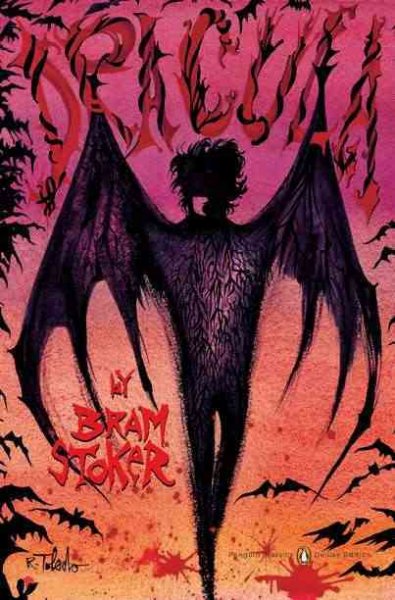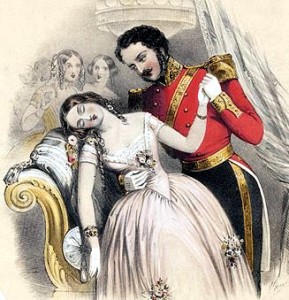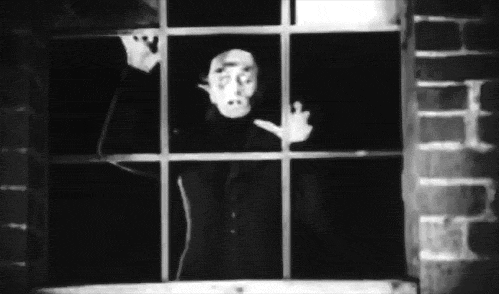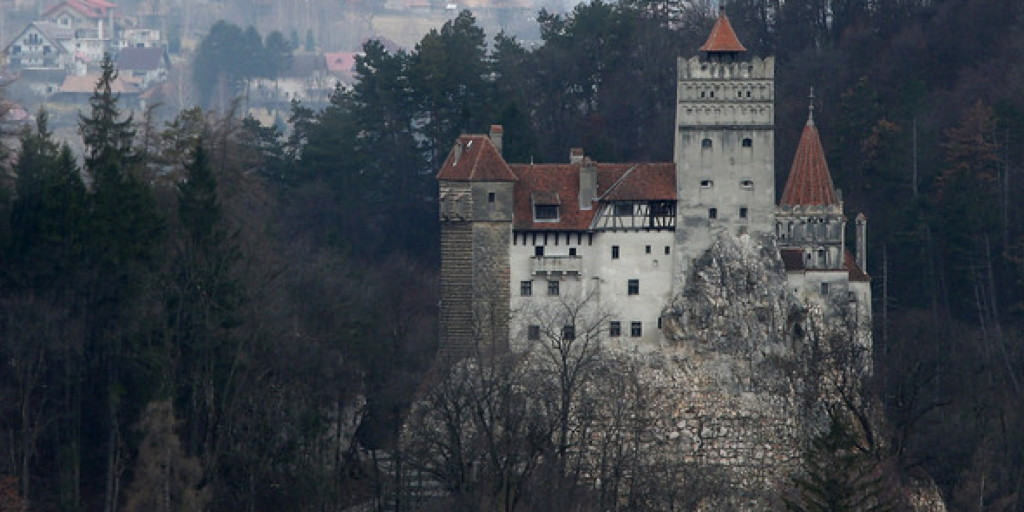So, October is my favorite month. Temperatures once again hover in the 60s, leaves begin their brief exhibition of color, and I get to indulge my seasonal love of horror. Many people are averse to the horror genre because of what I think is the mistaken idea that they don’t enjoy being scared. They imagine that watching a movie where characters are chased by a chainsaw-wielding madman is equally as traumatizing as being actually chased by a chainsaw-wielding madman. In my experience, if I succeed in getting friends to sit through a horror film, they say things like, “That wasn’t as scary as I thought it would be. I actually enjoyed that.”
Let me be clear: I do not enjoy real life terror any more than anyone else. When there is a thin film of safety, however, as there is when watching a scary movie, the terror can be downright thrilling. The same is true of reading a scary book.
 Last October, one of my coworkers told me that Bram Stoker’s classic Dracula was her all-time favorite book and implored me to read it that fall. I didn’t get around to it at the time, so I patiently waited all year for October to roll around so that I could read it in its proper season. It was well worth the wait.
Last October, one of my coworkers told me that Bram Stoker’s classic Dracula was her all-time favorite book and implored me to read it that fall. I didn’t get around to it at the time, so I patiently waited all year for October to roll around so that I could read it in its proper season. It was well worth the wait.
Published in 1897, Dracula was by no means the first work to feature blood-sucking vampires, but it did define the rules and limitations that govern vampires in both literature and film today. It also introduced the world to Count Dracula, the most famous of all vampires and one who has been featured in countless books and movies since.
The entire book is made up of a collection of diary entries and letters from a handful of characters along with a few newspaper clippings that lend additional credibility to the characters, who, at times, question their own sanities. Reading these entries feels a little voyeuristic because of the vulnerability and, yes, sexual tension that is rife in the novel. These references are at times hard to catch, hidden in the eloquent Victorian language common in Gothic novels of the late 1800s, and at other times, not so subtle (you’ll have to read to see what I mean). Readers have long theorized that Stoker used the story of the vampire to comment on the repressed sexuality of his time.
The book wastes no time in getting started. It opens with Jonathan Harker, a solicitor traveling to Transylvania (part of Romania) to meet a wealthy count who plans to purchase real estate in London. Harker is struck by the beauty of the surrounding Carpathian mountains while simultaneously being creeped out by the ominous feel of the place and its inhabitants. Superstitious locals seemingly beg him in their native language to stay, and one woman puts a rosary around his neck. By the time he gets to Castle Dracula (at midnight, no less), he is thoroughly petrified.
After a cliffhanger of a final entry in Harker’s diary, the setting switches to London, with a letter from Harker’s fiancee Mina to her friend Lucy expressing her anxiety at not hearing from her Jonathan. Soon the two women, along with three men, including Lucy’s fiance and a doctor who operates an asylum, call upon Dr. Abraham Van Helsing of Amsterdam to solve the mystery that has enveloped them, a mystery that seems to revolve around the thin, pale, man with red lips and sharp teeth and who has just arrived in London.
 Chilling and captivating, the novel’s only weakness is its misogyny. The men of the book repeatedly refer to the dainty, pretty women whom they must spare the horrors of the reality of Dracula. I found it disappointing that Stoker chose not to use his female characters to comment on the gender norms of the time, despite arming them with the capabilities to do so.
Chilling and captivating, the novel’s only weakness is its misogyny. The men of the book repeatedly refer to the dainty, pretty women whom they must spare the horrors of the reality of Dracula. I found it disappointing that Stoker chose not to use his female characters to comment on the gender norms of the time, despite arming them with the capabilities to do so.
Chapters often end in mysteries that can only be solved by reading the first several pages of the next chapter. If you’re like me, you’ll find yourself reading late into the night, the time of day where Dracula the character, and the novel, seem to exhibit their strongest powers.




Comments are closed.